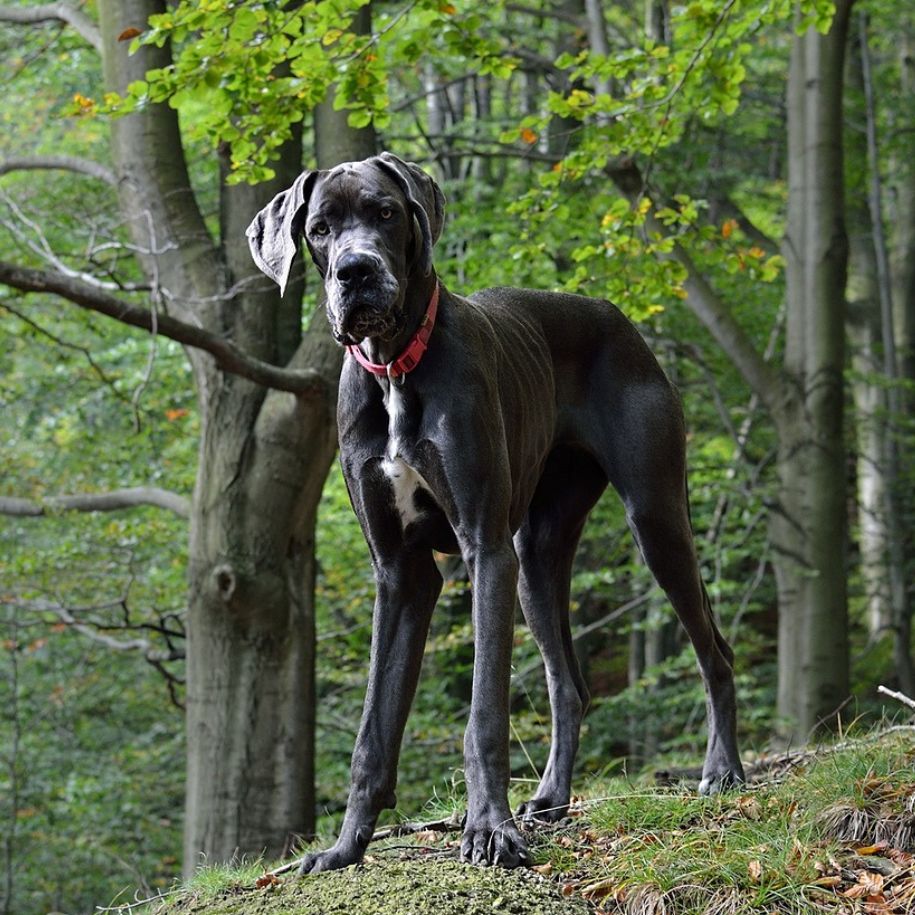The Welsh Corgi is a dwarf dog with a huge heart. Whether you fall for the tailless Pembroke Welsh Corgi or the long-tailed Cardigan Welsh Corgi, both corgi breeds share short legs, a thick double coat, and fearless herding instincts that once helped them herd cattle and sheep across the hills of Wales. Today, these lively pups thrive as affectionate family pets when owners provide high quality dog food, consistent training, and plenty of mental stimulation. In this guide, we’ll walk you through everything from their history and personality to daily care, health needs, and costs.
Quick Facts at a Glance
-
Group: Pastoral herding dogs; originally bred to drive livestock and war horses off farmers’ heels.
-
Height: 10–12 inches (≈ 25–30 cm); short but sturdy.
-
Dog’s weight: 9–13 kg for most dogs; Cardigan corgis tend to be a kilo heavier than Pembroke corgis.
-
Life span: 12–15 years; some royal corgis lived beyond 14.
-
Coat: Medium-length, waterproof double coat with dense undercoat—colours include red sable, fawn, black-headed tricolour, blue-merle, and brindle points with bright white markings.
-
Two corgi breeds, one heritage: the Pembroke Welsh (natural bobtail or docked tail, pointed ears) and the Cardigan (brush tail, rounded ears).
-
Ideal dog for: active owners, children, and homes that enjoy play, agility, and brisk walks year-round.
-
Exercise needs: About one hour daily, plus short training games to satisfy that sharp herding mind. The RSPCA reminds owners that “all dogs need outdoor exercise every day”.
-
Legal basics: By law every dog in England must be microchipped by eight weeks old (The Microchipping of Dogs Regulations 2015.
-
Cost check: Puppy prices vary with breeder reputation but averaged £1,200–£2,000 for Pembrokes in 2024; expect £800–£1,400 for Cardigans.
History and Origin
The corgi’s story begins over a thousand years ago in the rugged hills of Wales. Folk tales say Welsh fairies gifted the breed to local children; the faint line across a corgi’s shoulders is their “fairy saddle.” A more documented route involves Flemish weavers who settled in Pembrokeshire around 1100 AD, bringing small “dwarf dog” drovers that could nip cattle heels yet duck flying hooves. Over centuries, these sturdy, low-set workers thrived on Welsh farms, earning a name that may stem from cor (“dwarf”) and gi (“dog”).
Fast-forward to 1934 when the Kennel Club formally split the two corgi breeds—the tailless Pembroke Welsh Corgi and the long-tailed Cardigan Welsh Corgi. While both remained practical working dogs, the Pembroke’s connection to the royal family turned it into a popular dog breed nationwide. Cardigans, with their larger frames and rounded ears, kept a quieter but loyal following through the Welsh Corgi Club and the Cardigan Welsh Corgi Association.

What a Corgi Looks Like
Picture a fox like face, bold eyes and erect ears perched on a long body balanced by short legs—that is the classic corgi silhouette. Yet small details separate the cousins:
-
Pembroke’s ears: sharp and upright; Cardigan corgis have slightly rounded tips.
-
Tail: natural bobtail (Pembroke) or long brush (Cardigan).
-
Colours: red sable, fawn, tricolour, blue-merle, or black with brindle points—all judged acceptable if the white stays tidy.
-
Double coat: thick outer layer plus a soft undercoat; sheds heavily each spring and autumn.
Keep the back level; excess weight or constant stairs strain the spine and may trigger degenerative myelopathy later in a dog’s life.
Corgi Temperament
Corgis may be small, but they carry the bold heart of large herding dogs. Expect a dog that is:
-
Smart and trainable. Quick to learn tricks and commands—ideal for clicker work.
-
Vocal watchdog. Many Pembrokes alert the household with a sharp bark.
-
Family-friendly. With socialisation from a young age, corgis are a good family dog around children and other pets, though their herding instinct may lead them to nudge very small children toward “the flock.”
-
Sociable with other dogs. Cardigans often play the diplomat; Pembrokes can be bossy but usually settle well.
The RSPCA stresses that daily exercise plus mental play is essential to curb boredom and barking.
Common Health Issues in Corgi
Corgis are generally healthy, long lived dogs, but they do have some health conditions that owners should watch for. The most common include:
1. Intervertebral Disc Disease (IVDD):
Because of their long backs and short legs, corgis are prone to IVDD, which affects the spine and can lead to pain or even paralysis. The Royal Veterinary College (RVC) explains that this condition often appears in “dwarf dog” breeds like the Pembroke Welsh Corgi and the Dachshund.
2. Degenerative Myelopathy (DM):
This is a progressive spinal condition seen more often in older dogs. While not painful, it leads to loss of movement in the back legs. Pembroke corgis have a known genetic link to DM, and responsible breeders often screen for it using a DNA test.
3. Hip Dysplasia:
Though it's more common in larger dog breeds, corgis tend to develop hip issues too. The Kennel Club recommends hip scoring through the BVA/KC scheme to reduce this risk.
4. Obesity:
Weight gain worsens all the above conditions. Keeping a healthy dog’s weight and feeding a balanced diet—with controlled treats like cooked fresh rabbit or carrots—is essential.
If you're looking for a puppy, ask breeders for full health documentation. The Pembroke Welsh Corgi Club provides guidance on breed-specific health screening.
Corgi Daily Care
Corgis were bred for the windy hills of Wales, and their thick double coat keeps them warm in rain, wind, or snow. But this coat requires care:
1. Grooming Needs:
Expect heavy shedding twice a year. Daily brushing helps manage loose hair. A medium length coat means you won’t need professional grooming unless there's matting.
2. Bathing and Hygiene:
Baths every 6–8 weeks with a gentle dog shampoo are enough. Clean ears, trim nails, and check teeth regularly. The Cardigan Welsh Corgi especially benefits from paw trimming to avoid debris buildup.
3. Hydration and Nutrition:
Corgis need access to fresh water at all times and a diet suited to their age and energy. Since they’re prone to weight gain, measure food carefully and avoid overfeeding.
4. Climate Adaptability:
Corgis are tough dogs but can overheat in hot summers. Keep walks short on hot days, and offer cool spaces indoors.
Their herding instinct keeps them active indoors too. Short play sessions and puzzle toys work wonders when it's rainy outside.

Corgi Exercise Needs
Corgis may be small, but they are true working dogs. Both the Cardigan Welsh Corgi and Pembroke Welsh Corgi need regular exercise to stay healthy and calm.
1. Walks and Activity:
Most corgis need at least 45–60 minutes of exercise daily. That can include two 30-minute walks or a mix of walking, running, and play. Off-lead time is great in secure areas, as the RSPCA advises.
2. Mental Stimulation:
Because corgis are smart, they love to learn tricks and play training games. If bored, they may chew furniture or bark too much.
3. City vs Country Life:
Corgis adapt well to flat living—many Londoners own them—but access to a park or garden is ideal. In the countryside, corgis love open fields but must be leashed near cattle or other animals to avoid chasing.
Whether you're in a cottage or a townhouse, structured daily activity will help your corgi feel balanced and reduce unwanted barking.
Costs
Getting a corgi isn’t just about paying for the puppy—it’s a long-term investment. Here’s what to expect for UK corgi ownership in 2025:
1. Puppy Prices:
A Pembroke Welsh Corgi from a Kennel Club Assured Breeder costs £1,200–£2,000. A Cardigan Welsh Corgi is usually £800–£1,400. Royal corgis or those with champion lines can cost more.
2. Yearly Expenses:
-
Food: £300–£400/year
-
Insurance: £300–£600/year (depending on cover and age)
-
Vet visits, boosters, flea & worm treatments: £150–£250/year
According to the British Small Animal Veterinary Association, owning any medium sized dog like a corgi may cost £80–£100 per month.
UK Laws
If you’re getting your first corgi, make sure you meet the UK’s legal rules for dog ownership. These protect your pet and help you avoid fines:
1. Microchipping:
It is a legal requirement that all dogs over eight weeks be microchipped and registered with up-to-date contact information.
2. Pet Travel:
If you're taking your corgi abroad, you’ll need an Animal Health Certificate, a rabies vaccination, and tapeworm treatment (for some countries). Rules vary after Brexit, so check gov.uk for updates.
3. Control and Safety:
Corgis must be on a lead near roads and in most public spaces. They're rarely aggressive, but good practice includes socialising your puppy from a young age.
These basics are essential whether you’re walking your corgi near other dogs, kids, or small children.
Finding a Responsible Breeder or Rescue
-
Use the Pembroke Welsh Corgi Club, Cardigan Welsh Corgi Association, or American Kennel Club breeder listings to locate ethical kennels.
-
Ask for DNA tests covering hip dysplasia, degenerative myelopathy, and vWD.
-
Visit the litter in person; pups should be raised in a family home with other dogs and people.
-
Prefer adoption? Many healthy corgi types wait in UK rescues—an ideal dog for owners happy to skip puppyhood.
Is a Corgi Right for You?
Not every home suits a corgi. These questions can help you decide:
-
Do you have time to walk a corgi daily and provide training
-
Can you handle shedding and commit to regular coat care
-
Are you able to afford the lifetime cost of a pet
-
Are you happy with a dog that barks a lot or may try to herd your small children
Corgis are a good family dog, especially for older children. Their alert nature and loyalty make them excellent companions—but they do best in homes that match their energy. If you want a chill, quiet lapdog, a corgi may not be the breed for you.
FAQs
Is a Corgi a good family dog?
Yes! With proper training and early socialisation, corgis tend to do very well with families, including children and other pets. They love to be part of the pack and enjoy activity and attention.
What is the downside to corgis?
Corgis can bark a lot, shed heavily, and become bossy if under-trained. Their herding instinct means they may nip at ankles, especially of very small children or cats.
Does a Corgi bark a lot?
Yes. Corgis are alert by nature and may bark at strangers, delivery drivers, or other dogs. Proper training can reduce this, but barking is part of their working dog DNA.
Are corgis expensive in the UK?
They can be. A Pembroke Welsh Corgi often costs over £1,500 from responsible breeders, and monthly care (including food and insurance) adds up to £80–£100.
Conclusion
From Queen Elizabeth II’s palace pets to modern agility stars, Pembroke Welsh Corgis and Cardigan Welsh Corgis remain spirited workers wrapped in a cuddly package. Provide proper training, sensible diet, and plenty of fun, and you’ll discover why the world agrees this little herder is an ideal companion—loyal, intelligent, and always eager to try new things beside its favourite humans.




